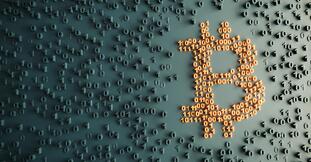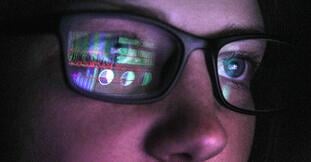Prague,
Czech Republic, 22 March 2017 - Avast, the leader in digital security products for
business and consumers, revealed that more than half (52%) of the most popular PC
applications, running on PCs around the world, including Flash and Java are out-of-date. The Avast PC Trends Report
Q1 2017, based on insights
from the company’s AVG TuneUp product, highlights the top 10 outdated
applications, the most used programs and hardware, and shows the problems people
face by not keeping their PC up-to-date. Most critically, people are exposing their
PC and their personal data to risks, as malware targets older versions of
software to exploit vulnerabilities.
Gathered anonymously from
116 million Windows® desktop and laptop users running AVG TuneUp’s Automatic Software
Updater feature, Avast found the most out-of-date programs include:
1. Java (Runtime 6,7), Oracle Corporation
2. Flash Player (Active X), Adobe Systems
3. Foxit Reader, Foxit Software
4. GOM Media Player, Gretech
5. Nitro Pro, Nitro Software
6. WinZip, Corel Corporation
7. DivX, DivX LLC
8. Adobe Shockwave Player, Adobe Systems
9. 7-ZIP, Igor Pavlov
10. Firefox, Mozilla
Topping this list of the least updated
applications is Java, the popular framework for web and some desktop
applications, with more than 24 million people running the outdated versions Java
Runtime 6 and 7. And while another 26 million users are on the latest version
Java 8, more than 70% haven’t installed the latest update rollout (currently
update 121).
This is closely followed by Flash (ActiveX) where 99% of users have
yet to update this control for Internet Explorer; and Foxit Reader which sees 92% of users working with an old version of
the application. Conversely, the most up-to-date applications are Google Chrome at 88%; Opera at 84%; and Skype which is 76% up-to-date across the sampled user base, which
illustrates that even the programs that auto-update are not necessarily always
up-to-date.
“In the online world, your security habits,
such as keeping your software updated, play a big role in your level of your
protection on the Internet,” said Ondrej Vlcek, Chief Technology Officer, GM
and EVP Consumer Business at Avast. “Running outdated programs leaves PC users
susceptible to attacks from savvy hackers exploiting easy-to-find or known
vulnerabilities. The cause of people using outdated software may be that updates
don’t install properly or they postpone or forget to update even when prompted.
We recommend people get into the habit of doing a regular status check on their
PC, use an automatic software updater tool like the one we provide in AVG TuneUp
and make sure their AV is always kept up-to-date.”
Key findings from the Report:
- Windows XP is not dead: Windows XP is still installed on 6% of the PCs surveyed. Around 6.5
million users from Avast’s sample base still use XP despite Microsoft discontinuing
support almost three years ago. Windows
7 is by far the most common OS with 48% of users running it, followed by Windows 10 which is used by 30%
- Low memory size slows people down: 4GB was the most common
by far, followed by 2GB. Smaller RAM sizes of 2GB or less may cause PCs to run
and perform tasks slowly if users do more than basic emailing or running a
browser with just a few tabs open. However, around 15 million Avast users are
running 8GB memory suggesting bigger RAM is trending upward.
- Quad-core CPUs are rare: the most common processor configuration is dual-core CPUs with 77% of sampled users owning a PC with these chips by either Intel or AMD. Quad-core processors, meaning four physical cores on one chip, were only found in 15% of surveyed PCs.
- Solid State drives not the norm - yet: we found Hard Disk
Drives (HDD) still dominate. Only 10 million of the 91 million disks sampled had
the newer Solid State Drives (SSD). The average HDD was 500GB, while the more
common SSD size was only 256GB, which is likely due to the fact that larger
SSDs are still sold at a much higher price point.
Users can easily update the software on their
PCs and keep themselves safe by using the new 2017 version of AVG TuneUp which now includes Automatic
Software Updater. This new feature uses patented technologies to update the most
used applications, like Skype, Adobe reader, Flash and Chrome, automatically
and silently in the background. Customers can choose to rely on the automatic
updates the feature provides, or tailor manual checks as desired.
The full report can be
viewed here. For more information
on Automatic Software Updater, AVG TuneUp, and AVG Internet Security, please
visit www.avg.com.
Methodology
The
report looks at the anonymous software, RAM and HDD data from 116 million
desktop and laptop users worldwide running Windows®. Only hard disk drives
using the modern SATA standard were evaluated; older interfaces, USB drives and
zeroed out disks that reported wrong disk capacity (too low or too high) were
excluded, which accounts for only 91 million out of our total user base of 116
million sampled. The sample was taken in January 2017.
Further images can be downloaded here: http://files.avast.com/files/marketing/materials/pctrendsreportjan2017.zip








